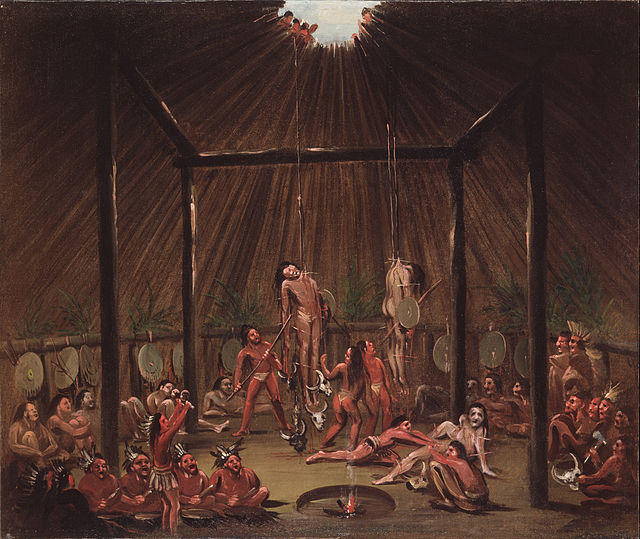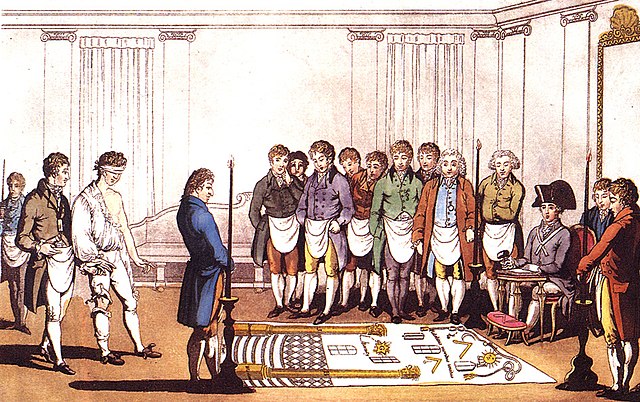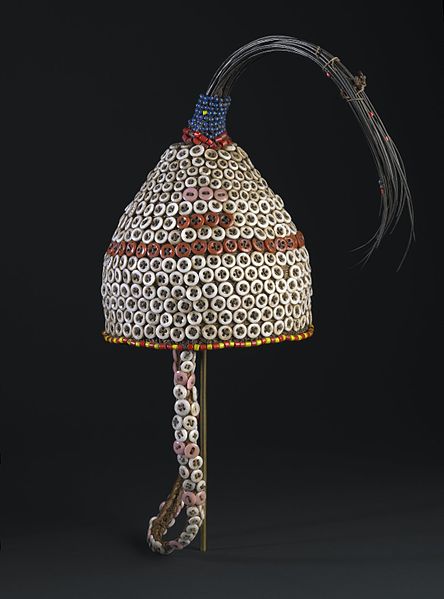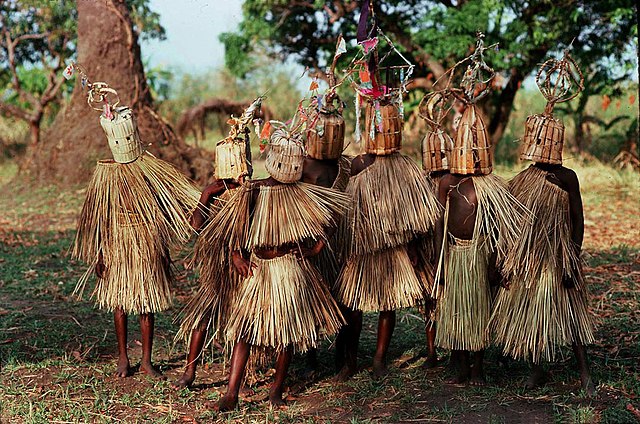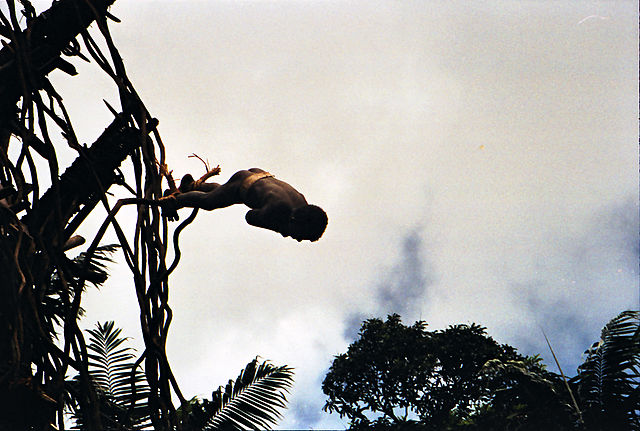Initiation is a rite of passage marking entrance or acceptance into a group or society. It could also be a formal admission to adulthood in a community or one of its formal components. In an extended sense, it can also signify a transformation in which the initiate is 'reborn' into a new role. Examples of initiation ceremonies might include Christian baptism or confirmation, Jewish bar or bat mitzvah, acceptance into a fraternal organization, secret society or religious order, or graduation from school or recruit training. A person taking the initiation ceremony in traditional rites, such as those depicted in these pictures, is called an initiate.
The Okipa ceremony was a test for young Mandan men to prove themselves as warriors. The ceremony as witnessed by George Catlin, circa 1835
Freemasonry initiation. 18th century
Equator crossing ceremony on Empress of Australia, August 1941
This hat would only have been worn by initiates to Kindi, the highest level of Bwami. Tail hair of an elephant, a metaphor for Kindi, crowns the hat. European-made buttons began to replace cowrie shells as prestige items on such Bwami paraphernalia as the Western presence grew in eastern Congo in the early twentieth century
A rite of passage is a ceremony or ritual of the passage which occurs when an individual leaves one group to enter another. It involves a significant change of status in society. In cultural anthropology the term is the Anglicisation of rite de passage, a French term innovated by the ethnographer Arnold van Gennep in his work Les rites de passage, The Rites of Passage. The term is now fully adopted into anthropology as well as into the literature and popular cultures of many modern languages.
Initiation ritual of boys in Malawi. The ritual marks the passage from child to adult, each subgroup having its customs and expectations.
The Hamar are known for their custom of "bull jumping", which initiates a boy into manhood.
Jewish boy reading a Torah scroll at his Bar Mitzvah, using a Yad
Land diving is a rite of passage for boys of the South Pacific island of Pentecost

